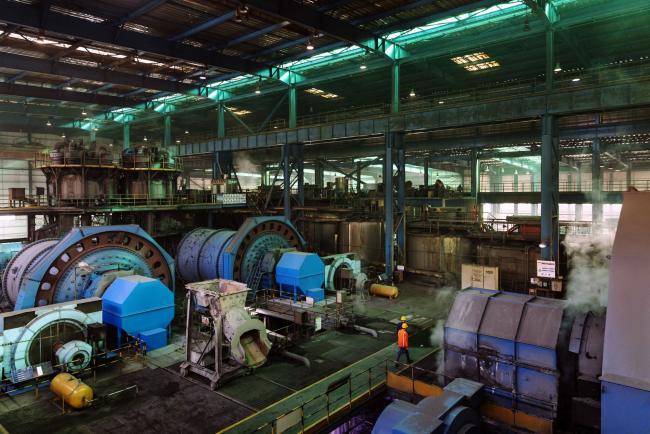(Bloomberg) -- The pickup in China’s economy in November adds to the optimism from the trade deal announced last week, though plenty of downside risks remain as the nation heads into 2020.
Industrial output and private consumption were both much stronger than expected, with production jumping 6.2% from a year earlier and retail sales climbing 8%, data released Monday showed. At the same time, fixed-asset investment in the first 11 months of this year grew at 5.2%, the slowest pace since at least 1998.
If the trade deal is signed early next year as the U.S. has indicated and tariffs on some Chinese goods are lifted, it would go some way to dispelling some of the uncertainty that has been hanging over the economy. Domestically, policy makers still face questions about the sustainability of debt and rising defaults, but the government has emphasized policy stability and there’s little chance of a change until at least March next year, when the government meets to approve 2020’s broad policy guidelines.
“Without the December tariff hike, the recent uptick in domestic activities will more likely last longer,” according to UBS AG’s Chief China Economist Wang Tao. The “easing policy tone should also support resilient property investment and a pick-up in infrastructure construction in the coming months,” but trade war related uncertainties will linger, which would depress corporate capital spending and prevent activities from returning to pre-tariff levels, she wrote.
Economists from UBS AG and Oxford Economics Ltd upgraded their forecast for gross domestic product growth in 2020 to 6% from 5.7% after the deal was announced, while saying uncertainties will linger. Citic Securities Co., a leading domestic brokerage house, said they expect the reduced tariffs to lift GDP growth by 0.5 percentage point in 2020, if all the other factors remain unchanged.
China’s commitment on agricultural purchases would also help policy makers manage pork-driven consumer inflation, according to Nomura International Ltd to China International Capital Corp. and Citigroup Inc (NYSE:C).
Whether there will be a rebound in sluggish investment will be closely watched going into next year. There was a slight pickup in fixed-asset investment by private companies, according to the November data. But growth was still weaker than for state-owned firms, indicating that private companies are still less confident about the economy. This may also reflect the increased difficulty they have in accessing credit.
To boost growth, the central government is encouraging local governments to sell more bonds earlier in 2020 to pay for infrastructure spending. How effective that will be remains to be seen, with spending on roads, trains, utilities and other infrastructure only growing 4% in the first 11 months of this year. That was slightly stronger than the same point last year, but well below levels in earlier years.
“The data look all good at first glance,” said Betty Wang, senior economist at Australia & New Zealand Banking Group Ltd. “But there are no evident signs that the sluggishness is turning around” she said, pointing out that the rebound in retail sales is probably due to a one-off factor, such as the Singles Day promotion, and that improvement in industrial production might be because of quarter-end spikes.
For 2020, the nation’s leaders said last week that they want to prioritize stability and keep growth within a “reasonable range.” Fiscal policy should be more proactive and effective, while prudent monetary policy should be “flexible and appropriate,” according to a statement released after the Central Economic Work Conference.
What Bloomberg’s Economists Say...
“The November activity data showed a decent rebound in production and demand, reflecting effects of supportive policy and favorable seasonal factors.’
“Even so, downward pressures on the economy remain. Cyclical policy easing is expected to continue, though likely with a little less intensity.”
Chang Shu, chief Asia economist at Bloomberg Economics
See full note here
On Friday, China and the U.S. announced they’d come to a preliminary trade agreement, staving off higher tariffs this month. However, the promised reductions in tariffs are unlikely to take effect until February at the earliest and that may postpone the real-world impact. Chinese exports to the U.S. fell in 10 of the 11 months this year.
That phase-one deal has reduced market uncertainty, boosted market confidence, and China hopes the two sides can work on more to rollback tariffs or even remove all the tariffs in stages, according to Fu Linghui, the National Bureau of Statistics spokesman.
The jobless rate was 5.1% in November, about the level it has been all year. There will be more than 13 million new urban jobs created this year, well above the 11 million target for the year, according to the Statistics Bureau.
